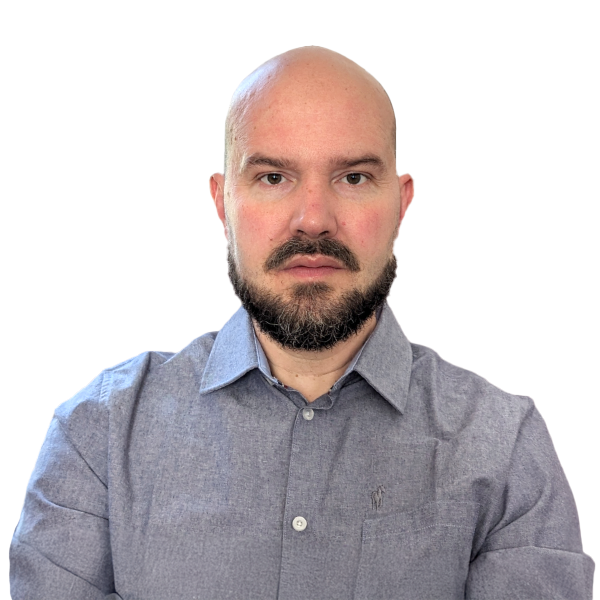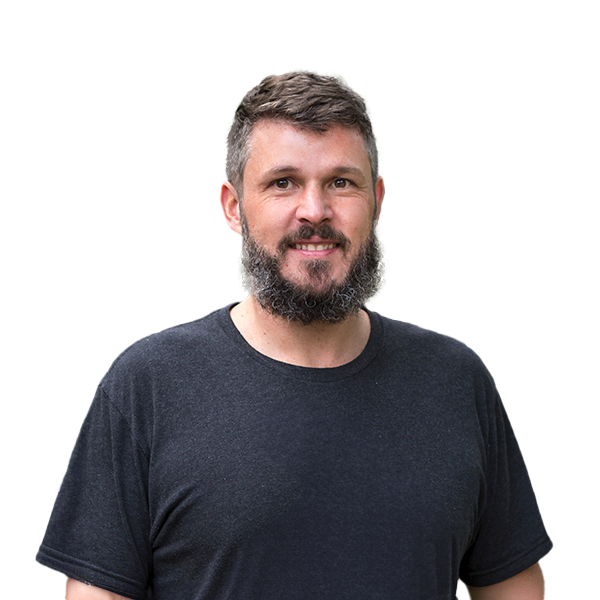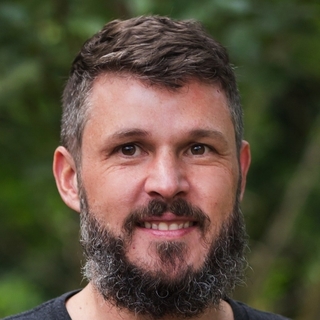
Hire Visual Studio Developers
Hire the Top 3% of Freelance Visual Studio Developers
Hire vetted Visual Studio developers, programmers, architects, engineers, experts, and consultants on demand. Leading companies choose Visual Studio freelancers from Toptal for their most important development projects.
No-Risk Trial, Pay Only If Satisfied.
Hire Freelance Visual Studio Developers
Landon J Sulick
Ever since Landon taught himself BASIC on an Apple IIc when he was a kid, he knew that he loved to code. His love for coding pushed him to major in computer science engineering. Over the years, he has worked in television broadcasting, education, insurance, and financial card issuance. In each of these sectors, Landon has learned that being passionate about technology that can meld customer needs with stakeholder needs is a formula for success.
Show MoreVishal Kumar
Vishal is a full-stack developer and JavaScript, Angular, React, and Node expert with nearly two decades of experience. He has led UI teams with a focus on best practices to deliver complex, mission-critical apps at companies like Delta Air Lines, Deloitte, and State Farm. He has also done extensive back-end work on Node for apps that scale to millions of daily users. He is active in the development community, with 40+ thousand Udemy students and speaking engagements at 2020 Angular Conference.
Show MoreKen Edwards
Ken has been programming for the last 30 years, as an owner of a software development business, full-time employee, consultant, and freelancer. He's done all aspects of software development, including planning, analysis, design, development, implementation, testing, and maintenance. Ken has built over 100 computer applications for small to medium-sized businesses, individuals, and ministries—from the most simple to the very complex.
Show MoreCamille Potard
Camille is a senior software developer with 20 years of experience building desktop applications for notable clients, such as E-on software, Hitachi, and Alstom. His primary expertise includes C, C++, Python, and real-time technologies with 3D software, in railway, power, video, imaging, and web domains. Camille thrives in remote environments with small or medium-sized teams.
Show MoreRyan McElroy
Ryan is a software development, design, and management professional with 10+ years of experience as a consultant, including 5+ years at the executive level. His expertise ranges from hands-on development/operations to solution and enterprise architecture. With broad industry experience (insurance, finance, eCommerce, utilities, and more), Ryan brings value to any client who wants to start on the right foot or improve what they have.
Show MoreCleivson Siqueira De Arruda
Cleivson is a senior back-end engineer with a decade of experience working with agile development and solving business problems by diving deep into the user's requirements. While working at Amazon, he was able to develop and maintain systems with a high load (millions, sometimes billions of requests per day) in a highly scalable and highly available environment. Cleivson specializes in C#, Java, and TypeScript languages and can rapidly ramp up any other technology.
Show MoreGustavo Cardozo
Gustavo is a software developer with around 17 years of experience, working mainly on the back end and occasionally on the front end. As a self-learner, he thrives on using the latest technologies, frameworks, and software architectures. He has significant experience with Microsoft technologies, namely .NET, C#, SQL, and Angular, and is also an expert in Azure DevOps. Gustavo enjoys collaborating remotely and on-site with multicultural teams from diverse locations and time zones.
Show MoreAnderson Luiz Ferrari
Anderson is a software engineer who's strongly committed to delivering the best solution for the problem. In his more than 20 years in the IT industry, he's worked in projects from custom web development, collaboration portals, e-learning platforms, ERP, CMS, project management tools, mobile apps, reporting, business intelligence platforms up to IoT projects. Anderson has an MBA in project management and holds a PMP and MCSD .NET certification.
Show MoreGustavo Muller
Gustavo is a goal-driven back-end developer with over 20 years of experience in AI, embedded devices/apps, machine vision, and high-performance network client/server software. Gustavo's expert skillset includes a range of languages (Python, C++, JavaScript), tools (Visual Studio), and platforms (Linux, Windows). Gustavo's held several leadership roles—including CTO, CIO, development manager—as well as technical roles to deliver several solutions, as seen in his project history.
Show MoreJani Järvinen
Jani is an experienced and certified software development professional with over 20 years of experience in Microsoft technologies, cloud services, and web application development. In addition, Jani is well aware of system security, DevOps, project management, and databases. Jani has also authored six software development books as well as worked as a trainer in various technologies.
Show MoreEmre Taşkın
Emre is a dynamic and creative software developer with 6+ years of experience in C# producing robust code. His expertise lies in Unity mobile games, WPF desktop apps, and Windows Services, with some experience in UI/UX design. His tech stack consists of Unity, Visual Studio, Firebase, and Photoshop. With the help of formal mechanical engineering education, Emre enjoys solving mathematical problems and doing DIY projects with Arduino.
Show MoreDiscover More Visual Studio Developers in the Toptal Network
Start HiringA Hiring Guide
Guide to Hiring a Great Visual Studio Developer
Visual Studio developers specialize in building, debugging, and optimizing software applications using Microsoft’s integrated development environment (IDE). Whether working in .NET, C++, or other supported languages, these professionals leverage Visual Studio’s robust toolset to accelerate development cycles and deliver scalable, high-performance applications tailored to business needs.
Read Hiring Guide... allows corporations to quickly assemble teams that have the right skills for specific projects.

Despite accelerating demand for coders, Toptal prides itself on almost Ivy League-level vetting.









How to Hire Visual Studio Programmers Through Toptal
Talk to One of Our Client Advisors
Work With Hand-selected Talent
The Right Fit, Guaranteed
EXCEPTIONAL TALENT
How We Source the Top 3% of Visual Studio Developers
Our name “Toptal” comes from Top Talent—meaning we constantly strive to find and work with the best from around the world. Our rigorous screening process identifies experts in their domains who have passion and drive.
Of the thousands of applications Toptal sees each month, typically fewer than 3% are accepted.
Capabilities of Visual Studio Developers
Visual Studio developers create efficient, scalable applications across platforms by leveraging the integrated development environment’s (IDE) comprehensive toolset to streamline coding, testing, and deployment processes.
Building .NET Applications
Cross-Platform Mobile App Development with Xamarin
Developing Web Applications with ASP.NET
API Integration
Database Integration with SQL Server
Building Desktop Applications with WPF and WinForms
Custom Plugin and Extension Development
Debugging and Diagnostics
Version Control and Collaboration with Git
Continuous Integration and Delivery (CI/CD)
FAQs
How quickly can you hire with Toptal?
Typically, you can hire Visual Studio developers with Toptal in about 48 hours. For larger teams of talent or Managed Delivery, timelines may vary. Our talent matchers are highly skilled in the same fields they’re matching in—they’re not recruiters or HR reps. They’ll work with you to understand your goals, technical needs, and team dynamics, and match you with ideal candidates from our vetted global talent network.
Once you select your Visual Studio engineer, you’ll have a no-risk trial period to ensure they’re the perfect fit. Our matching process has a 98% trial-to-hire rate, so you can rest assured that you’re getting the best fit every time.
How do I hire Visual Studio developers?
To hire the right Visual Studio expert, it’s important to evaluate a candidate’s experience, technical skills, and communication skills. You’ll also want to consider the fit with your particular industry, company, and project. Toptal’s rigorous screening process ensures that every member of our network has excellent experience and skills, and our team will match you with the perfect Visual Studio developers for your project.
How are Toptal Visual Studio programmers different?
At Toptal, we thoroughly screen our Visual Studio consultants to ensure we only match you with the highest caliber of talent. Of the more than 200,000 people who apply to join the Toptal network each year, fewer than 3% make the cut.
In addition to screening for industry-leading expertise, we also assess candidates’ language and interpersonal skills to ensure that you have a smooth working relationship.
When you hire Visual Studio architects with Toptal, you’ll always work with world-class, custom-matched Visual Studio developers ready to help you achieve your goals.
Can you hire Visual Studio architects on an hourly basis or for project-based tasks?
You can hire Visual Studio engineers on an hourly, part-time, or full-time basis. Toptal can also manage the entire project from end-to-end with our Managed Delivery offering. Whether you hire a Visual Studio developer for a full- or part-time position, you’ll have the control and flexibility to scale your team up or down as your needs evolve. Our Visual Studio developers can fully integrate into your existing team for a seamless working experience.
What is the no-risk trial period for Toptal Visual Studio engineers?
We make sure that each engagement between you and your Visual Studio developer begins with a trial period of up to two weeks. This means that you have time to confirm the engagement will be successful. If you’re completely satisfied with the results, we’ll bill you for the time and continue the engagement for as long as you’d like. If you’re not completely satisfied, you won’t be billed. From there, we can either part ways, or we can provide you with another Visual Studio developer who may be a better fit and with whom we will begin a second, no-risk trial.

How to Hire Visual Studio Developers
Demand for Visual Studio Developers Continues to Expand
Visual Studio is Microsoft’s popular integrated development environment (IDE), and it acts as the backbone of many enterprise applications, cloud solutions, and cross-platform development projects. It supports various languages, such as C++, .NET, JavaScript, TypeScript, and Python, making it a popular tool among all kinds of developers. According to the Stack Overflow Developer Survey, Visual Studio and VS Code (Microsoft’s text editor that functions as a streamlined version of Visual Studio) were the top two IDEs used by software developers in 2024. Whether your business focuses on desktop, web, game, server, or mobile app development, a qualified Visual Studio expert can enhance your project’s code, version control, DevOps, and more.
The challenge for hiring managers goes beyond finding developers familiar with standard Visual Studio tools. The best experts master the expansive feature set of Visual Studio—from advanced debugging capabilities to DevOps integration and cloud development tools—and are proficient with its extensibility.
This comprehensive hiring guide provides technical decision-makers with concrete strategies for evaluating technical proficiency, crafting standout job descriptions, interviewing experts, and distinguishing exceptional candidates from merely competent ones. Choosing a candidate who suits your project’s specific needs ensures engineering excellence and provides a competitive business advantage.
What Attributes Distinguish Quality Visual Studio Developers From Others?
Visual Studio engineers provide enterprise-grade software solutions for modern businesses. Unlike developers who work exclusively with lightweight code editors (e.g., VS Code) or platform-specific tools, these experts work with a full-fledged IDE on end-to-end development services that span the entire software development lifecycle—from initial design to deployment and maintenance. This process includes optimizing development workflows, integrating technologies or databases, and debugging complex issues.
However, mastery of the IDE in itself is not enough to build a fully functional application, as it provides an expert with tools to complement their existing experience in app development. A Visual Studio programmer specializes in certain kinds of development (e.g., mobile, games, or web services) and programming languages (e.g., JavaScript, .NET, C++). Narrowing down the comprehensive range of developer expertise based on your project requirements is essential.
For example, a developer may use the IDE to build robust desktop applications using WinForms and WPF, web apps with ASP.NET, mobile apps with MAUI and Xamarin, or cloud-native solutions. They might help an organization modernize legacy systems, migrate applications to new frameworks, or maintain older applications. Finally, experts may help with performance optimization and DevOps, reducing time-to-market for new features.
Core Technical Competencies
Candidates should balance soft skills (e.g., problem-solving, project management, and collaboration) with core technical competencies. When vetting the talent pool, mastery of the Visual Studio ecosystem, programming languages and frameworks, and architecture and DevOps skills should be considered baseline requirements.
Deep Ecosystem Knowledge: Experience with Visual Studio’s ecosystem is a must. Look for candidates who can take advantage of the full suite of tools, including debugging with IntelliTrace, performance profiling, using integrated testing frameworks, operating the build platform (MSBuild) and deployment pipelines, and managing version control with the built-in Git or Azure DevOps integrations. Visual Studio offers three different versions: Community, Professional, or Enterprise. If your project requires taking advantage of the advanced features in the Enterprise edition, you’ll want a candidate with experience with that version to avoid knowledge gaps.
Programming Languages and Frameworks Mastery: Visual Studio complements various languages and tools, including C# with ASP.NET Core, JavaScript and TypeScript (often paired with Node.js), HTML, CSS, Python, Visual Basic, C++, and F#. However, it is not designed to complement all languages, such as Java and PHP. Candidates should specialize in a language that suits your project needs. For example, traditional .NET Framework applications need developers proficient in C# or VB.NET, while a web application might require ASP.NET and ASP.NET Core programmers. A C++ developer best suits performance-critical applications or system-level programming, and .NET MAUI or Xamarin experts can assist with cross-platform development projects. Regardless of specialization–and whether focused on the front end, back end, or APIs–any candidate should have a strong track record developing applications that relate to your project needs, keep up-to-date with the best practices in their area of development, and use modern frameworks and tools to speed up the development process.
Solution Architecture and DevOps Capabilities: Senior software engineers working on application design should have experience using Visual Studio’s modeling and diagramming tools to create scalable application architectures and understand architecture and design patterns appropriate to the business domain. They make reusable component libraries, use package managers (e.g., NuGet), and optimize database interactions through integrated tools like SQL Server Data Tools. Moreover, as the application matures, programmers may manage the application’s lifecycle with the Azure DevOps integration, implement containerization using integrated Docker tools, and handle cloud deployment to Azure and other platforms directly from the IDE.
How Can You Identify the Ideal Visual Studio Developer for You?
The first step in identifying the right candidate is describing your specific development requirements. For example, do you have an existing technology stack to work with, or do you need a senior architect to choose one? For ongoing projects, what technical challenges does your project face, and what are the skill gaps among your existing team members? Are you building a new application from scratch, maintaining legacy systems, migrating to cloud infrastructure, or implementing DevOps practices? Each scenario demands different complementary skills and developer levels.
Distinguishing Between Junior, Mid-level, and Senior Coders
Your technical needs will also inform whether you seek a junior, mid-level, or senior programmer. Understanding the capabilities associated with different experience levels helps you balance project results with costs and hire the appropriate talent.
Junior developers best suit simple applications following established patterns, teams with strong technical leadership, and resource-constrained projects. They typically handle routine tasks under supervision, such as fixing minor bugs, implementing simple features, and writing unit tests. However, junior coders may struggle with complex scenarios like architectural decisions or performance tuning. Junior programmers have up to two years of project experience in their area of development and professional experience with Visual Studio. Look for candidates who understand the IDE’s debugging tools and version control integrations (e.g., Git).
Mid-level developers balance cost and capabilities. They are prepared to handle full-feature implementation, maintain and improve existing systems, and implement pre-defined architectures independently. Mid-level programmers will have three to five years of experience demonstrating their ownership of major application areas. In addition, they have command over Visual Studio’s advanced features, such as IntelliSense, integrated testing tools, and performance profiling. Beyond coding, they may improve team collaboration by assisting with code reviews, CI/CD pipelines, and documentation.
Senior developers are technical leaders prepared to architect scalable solutions, optimize application performance, and guide the team in solving complex problems. Though demanding higher compensation, senior programmers are often worth the cost due to their exceptional quality of work; if you don’t have an existing team in place, it makes sense to onboard a senior expert to help with high-level decisions and lead team expansion through strategic developer hires. These experts possess at least six years of experience and have typically served as a tech lead on at least one project. They should have deep knowledge of the Microsoft development ecosystem, mastery of Visual Studio’s advanced features, and an understanding of its implementation. Senior coders understand how to customize the IDE, extend its functionality, and set best practices for tool usage to optimize team productivity.
Complementary Technology Skills
Any candidate needs a specialization and technical skills ranging beyond Visual Studio proficiency. Though many required skills will depend on your development area and business needs, specific complementary skills benefit most modern projects, such as cloud integration, database development, and DevSecOps practices.
Cloud Platform Integration: As cloud infrastructure becomes standard across industries, developers with cloud integration skills are vital for building scalable, resilient applications. Candidates should understand how to deploy applications to cloud platforms directly from the IDE using built-in publishing tools and deployment profiles. In addition, a developer’s proficiency with the Azure DevOps integration helps them effectively manage CI/CD pipelines, automate testing and deployment, and monitor builds from within the IDE. The best candidates understand cloud-native development practices such as Docker containerization, serverless functions, and microservices architecture.
Database Development: Most applications deal with data, and enterprise solutions often require advanced data storage and retrieval capabilities. Strong database skills allow candidates to improve application performance and maintain growing databases. Look for proficiency with SQL Server Data Tools, database schemas, ORM frameworks like Entity Framework, and database projects within the IDE. The best candidates have extensive experience designing high-performance queries and implementing proper data access patterns appropriate to specific business domains.
Advanced DevSecOps Practices: Enterprise applications will benefit from programmers who habitually implement security practices throughout the development lifecycle to protect sensitive data and ensure regulatory compliance. Strong candidates have experience with Visual Studio’s built-in tools, such as the Microsoft Security DevOps static analysis tools. In addition, they may automate security checks with tools like GitHub Advanced Security for Azure DevOps, which sets up alerts for identified vulnerabilities before they reach production. Finally, familiarity with authentication and authorization frameworks (e.g., OAuth 2.0, OpenID Connect, or ASP.NET Identity) allows a candidate to secure user access and data.
Testing Tools: Developers with testing expertise prevent bugs before they happen, improve app reliability, and create more maintainable codebases. These skills are essential for any software developer, as software quality directly impacts customer satisfaction and development costs. Candidates should understand how to implement unit, integration, and end-to-end testing and be familiar with test-driven development practices. Moreover, Visual Studio includes built-in unit testing tools like Test Explorer and Microsoft Native Unit Test Framework. Exceptional candidates leverage automated testing strategies and the IDE’s code coverage and quality analysis tools.
How to Write a Visual Studio Developer Job Description for Your Project
Crafting an effective job description involves articulating precise technical requirements alongside the project’s unique challenges and opportunities. Start with the specific development area and technologies relevant to your project (e.g., .NET Framework, ASP.NET Core, Python). Including details about your tech stack, team structure, business domain, and company culture will also help attract candidates aligned with your work environment. You should also provide standard information about the role, such as whether it is full-time or part-time, in-house or contract, or requires accommodating certain time zones.
Use a descriptive job title that goes beyond “Visual Studio Developer.” Strong examples include “Full-time .NET Developer,” “Senior Web Developer (Visual Studio),” or “DevOps Engineer (Microsoft Tooling).” The title is the first thing that applicants see, and it should concisely summarize the required qualifications and tech stack.
What Are the Most Important Visual Studio Developer Interview Questions?
Your interview should center on the development area and programming languages your project focuses on (e.g., drawing from web development, .NET, or C# interview questions). You may complement these questions with ones that assess Visual Studio expertise, which impacts productivity, debugging efficiency, and software quality.
How do you use Visual Studio’s debugging tools to diagnose and resolve issues?
Effective debugging reduces downtime and ensures faster issue resolution, leading to more stable software and a smoother user experience. Candidates should mention using breakpoints (standard, conditional, and data breakpoints) to pause execution and inspect state changes. For enterprise applications, IntelliTrace helps with historical debugging, and the Performance Profiler can address performance or memory issues by analyzing CPU usage and memory allocation. Advanced candidates may also use the Tasks and Async Call Stack windows to debug asynchronous or parallel code execution, especially in multithreaded or .NET async/await environments.
What extensions or plugins do you use to enhance Visual Studio’s functionality?
Advanced developers use extensions strategically to streamline development and improve code quality. However, they should also understand when to avoid excessive extensions that may slow down performance. Some commonly used extensions that candidates might mention include ReSharper (a productivity enhancement with code analysis and an AI assistant), Visual Assist (a productivity toolkit for C, C#, and C++), and Prettier (a code formatter for consistent style).
How do you configure and use Visual Studio’s build and deployment tools?
Finding a candidate who streamlines build and deployment ensures faster releases and reduces manual errors. A good answer should include using MSBuild to automate builds and publish profiles for streamlining deployment to environments like IIS, Azure, or local folders. In addition, look for familiarity with build configurations (e.g., Debug vs. Release) and managing settings (e.g., through web.config transformations). Finally, candidates should have experience configuring CI/CD pipelines with build and deployment automation using Visual Studio’s integrations with Azure DevOps.
How do you manage dependencies and packages in Visual Studio projects?
Dependency management ensures maintainability, security, and portability. Look for candidates who can clearly explain how they have used the NuGet Package Manager to handle version conflicts, configure package restore settings (including automatic package restore), and add, update, or remove dependencies. The best candidates will discuss using NuGet.config for environment-specific settings and have experience performing dependency audits to address security vulnerabilities.
Why Do Companies Hire Visual Studio Developers?
Companies hire Visual Studio experts because they can pair their area-specific expertise with the ability to streamline development through debugging, testing, and deployment tools. Skilled developers who can leverage Visual Studio’s full potential boost team productivity by reducing technical debt and preventing bugs before they happen–providing scalable, maintainable software and accelerating time to market.
Moreover, Visual Studio specialists can effectively build various types of applications, ranging from enterprise apps, AI-powered services, and cloud-native solutions to web, desktop, cross-platform, or mobile applications. They offer businesses flexibility within the Microsoft ecosystem, with mastery of tools and languages like .NET, Azure, SQL Server, and Xamarin.
The best programmers can transform business requirements into tangible productivity improvements by mastering Visual Studio’s advanced features, customizing extensions, optimizing builds, and automating workflows for a development team’s specific needs. Ultimately, businesses don’t just hire Visual Studio engineers to write code; they hire them to create high-quality, future-proof software with minimal downtime and maximum efficiency.
Featured Toptal Visual Studio Development Publications
Top Visual Studio Developers Are in High Demand.























